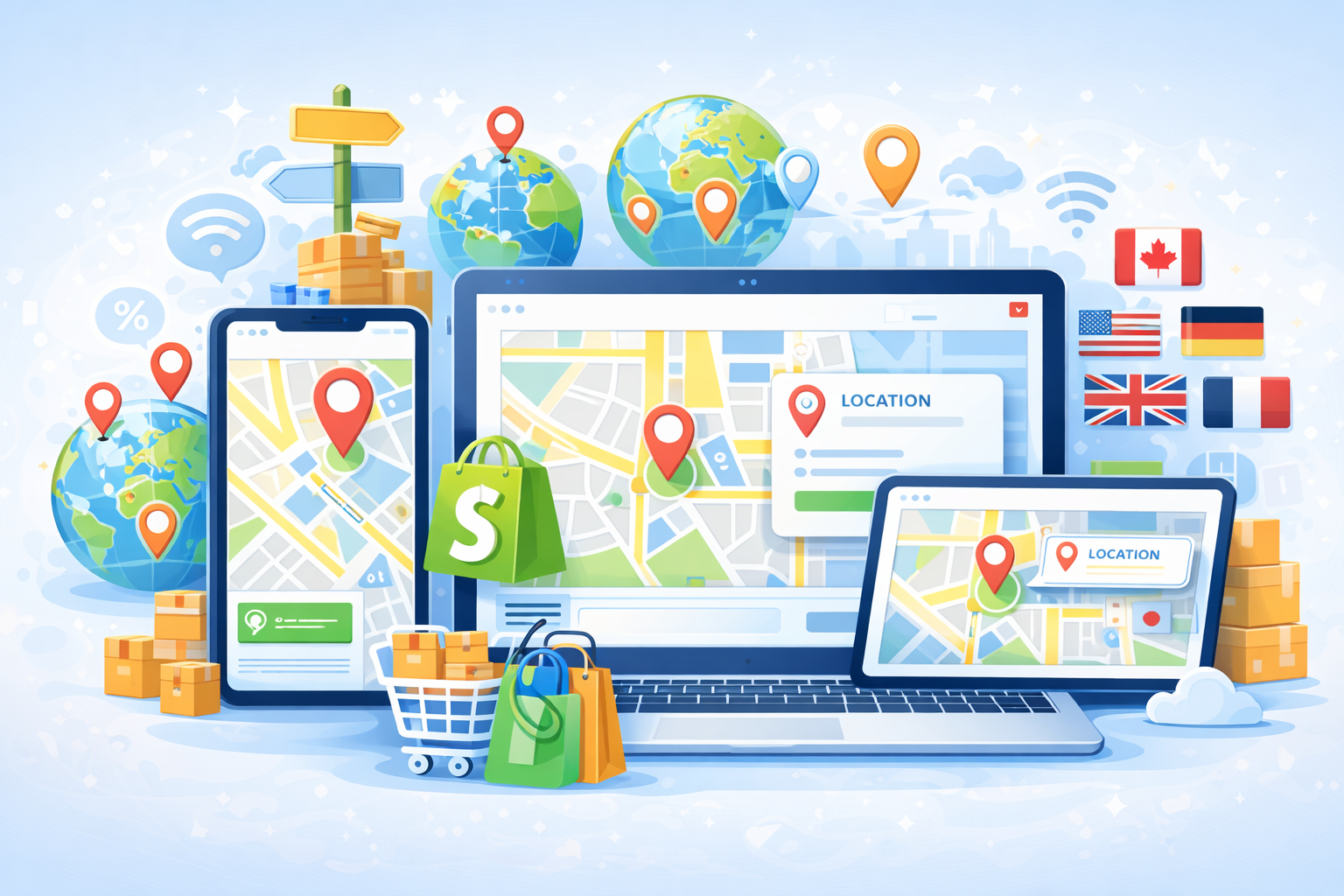Try Zipchat in Action!
Enter your store URL to see how Zipchat would behave.

Black Friday and Buy Nothing Day are two contrasting events that take place on the same day, with completely different purposes and impacts. While Black Friday is known for its intense shopping craze and lucrative deals, Buy Nothing Day encourages people to abstain from purchasing anything for a day and promotes mindful consumerism. In this article, we will delve into the understanding and origins of Black Friday, explore the concept and significance of Buy Nothing Day, and compare the economic, social, and environmental aspects of these two events.
Understanding Black Friday
Black Friday, which falls on the day after Thanksgiving in the United States, traditionally marks the beginning of the holiday shopping season. It has grown to become one of the busiest shopping days of the year, both in physical stores and online. Understanding the origins of Black Friday provides valuable insights into its evolution and impact on retail revenue.
Origins of Black Friday
The term "Black Friday" first emerged in the 1960s, with its roots originating from Philadelphia. It was initially used by police officers to describe the chaotic traffic and crowded streets that occurred as shoppers flooded the city on the day after Thanksgiving. Picture this: bustling streets filled with eager shoppers, their arms laden with bags and their eyes gleaming with anticipation. The term quickly spread across the country, becoming synonymous with the kickstart of the holiday shopping season.
As the years went by, Black Friday evolved into a cultural phenomenon. It became a day when families and friends would gather early in the morning, armed with shopping lists and a determination to snag the best deals. The excitement in the air was palpable as shoppers strategized their routes, aiming to hit multiple stores in search of the most coveted items. The tradition of waking up before dawn, fueled by adrenaline and a desire for bargains, became an integral part of the Black Friday experience.
Evolution to Online Shopping
In recent years, the advent of e-commerce has revolutionized the way people participate in Black Friday. Online retailers offer enticing discounts, allowing consumers to shop from the comfort of their homes. This shift to online shopping has not only changed the dynamics of Black Friday but has also opened up new possibilities for shoppers. No longer constrained by geographical limitations, people can now explore a vast array of products and compare prices with just a few clicks.
Imagine sitting in your cozy living room, sipping a warm cup of coffee, while browsing through countless online deals. The convenience and ease of online shopping have undoubtedly contributed to the exponential growth and popularity of Black Friday sales. In fact, some retailers have taken it a step further by extending the event to span several days or even weeks, creating what is now commonly known as "Cyber Week." This extended period of discounts and promotions allows shoppers to pace themselves and make thoughtful purchasing decisions.
Impact on Retail Revenue
For retailers, Black Friday represents a crucial period for boosting their revenue and clearing out excess inventory. It has been reported that the revenue generated on Black Friday can account for a substantial portion of a retailer's annual earnings. The anticipation leading up to this day is immense, as businesses meticulously plan their marketing strategies and stock up on inventory to meet the overwhelming demand.
In 2020, despite the challenges posed by the global pandemic, the total Black Friday online sales in the United States alone reached a staggering $9 billion. This remarkable figure not only highlights the resilience of the retail industry but also underscores the significance of Black Friday as a revenue powerhouse. The ability of retailers to adapt to changing circumstances and provide enticing online deals played a crucial role in driving this unprecedented success.
As we look to the future, it is clear that Black Friday will continue to evolve. The lines between physical and online shopping will blur even further, as retailers strive to create seamless omnichannel experiences for their customers. Whether it's the thrill of braving the crowds in search of a great deal or the convenience of shopping from the comfort of home, Black Friday remains a highly anticipated event that brings people together in pursuit of savings and holiday cheer.
Buy Nothing Day Explained
On the other end of the spectrum, Buy Nothing Day emerged as a response to the consumerism and overconsumption associated with Black Friday. It aims to raise awareness about the environmental and social impacts of mindless shopping and encourage individuals to question their purchasing habits.
Origins and Purpose
Buy Nothing Day was initiated by the artist Ted Dave in the early 1990s and has gained global recognition over the years. The day serves as a reminder for people to reflect on their consumption patterns and reconsider the value they place on material possessions. Its purpose is to promote sustainable living, advocate for local businesses, and challenge the notion that happiness can be purchased.
But what exactly does sustainable living mean? Sustainable living refers to a lifestyle that aims to minimize the use of natural resources and reduce the negative impact on the environment. It involves making conscious choices about what we consume, how we consume it, and the long-term consequences of our actions. By participating in Buy Nothing Day, individuals can take a step towards embracing sustainable living and contributing to a healthier planet.
Global Awareness and Participation
Buy Nothing Day has transcended geographic boundaries and is observed in various countries worldwide. The event has sparked conversations about the consequences of rampant consumerism on the environment, workers' rights, and social inequalities. It encourages individuals to explore alternative ways of finding fulfillment beyond material possessions.
One such alternative is the concept of minimalism. Minimalism is a lifestyle that focuses on owning fewer material possessions and prioritizing experiences and relationships over things. By adopting a minimalist mindset, individuals can break free from the cycle of constant consumption and find contentment in the simplicity of life. Buy Nothing Day serves as a catalyst for embracing minimalism and reevaluating our relationship with material possessions.
Impact on Consumer Behavior
While the immediate impact of Buy Nothing Day on retail revenue might seem counterproductive, the event aims to inspire consumers to make more conscious choices throughout the year. By challenging the urge to mindlessly shop and examining the true necessity and impact of their purchases, individuals can reduce waste and support sustainable practices.
Moreover, Buy Nothing Day encourages individuals to explore alternative ways of meeting their needs. This could involve borrowing or sharing items with friends and neighbors, repairing and repurposing old belongings, or supporting local businesses and artisans who prioritize sustainable and ethical practices. By embracing these alternatives, individuals can contribute to a more sustainable and equitable economy.
Comparing Black Friday and Buy Nothing Day
Understanding the key differences between Black Friday and Buy Nothing Day provides insights into their contrasting economic, social, and environmental implications.
Black Friday, a post-Thanksgiving shopping extravaganza known for its doorbuster deals and midnight store openings, has become a cultural phenomenon in many countries. The day marks the beginning of the holiday shopping season, with retailers offering steep discounts to attract throngs of eager shoppers. The frenzy of Black Friday sales not only drives consumer spending but also influences trends in retail, marketing, and supply chain management.
On the other hand, Buy Nothing Day presents a counter-narrative to the consumerist fervor of Black Friday. Originating as a protest against excessive consumption, Buy Nothing Day encourages individuals to opt-out of the shopping frenzy and instead reflect on the impact of their purchasing choices. This day serves as a reminder to prioritize mindful consumption, community engagement, and sustainable living practices.
Economic Impact and Consumer Choices
Black Friday significantly boosts retail sales, contributing to the economy. The allure of deep discounts prompts consumers to purchase items they might not have otherwise considered, highlighting the effect of impulse buying. On the other hand, Buy Nothing Day challenges consumers to question their spending habits and make intentional purchases, prioritizing quality over quantity and supporting local businesses.
While Black Friday stimulates short-term economic growth through increased consumer spending, critics argue that it can perpetuate a culture of overconsumption and debt. In contrast, Buy Nothing Day advocates for conscious consumerism, encouraging individuals to break free from the cycle of materialism and invest in experiences rather than possessions.
Social and Environmental Considerations
Black Friday's mass consumerism often fuels a cycle of overconsumption and waste. The eagerness for deals leads to crowded stores, increased traffic, and excessive packaging. In contrast, Buy Nothing Day encourages individuals to rethink their relationship with material possessions, promoting minimalism, and reducing the strain on the environment.
Moreover, the environmental impact of Black Friday extends beyond the immediate shopping frenzy. The production, transportation, and disposal of goods purchased during this period contribute to carbon emissions, resource depletion, and landfill waste. Buy Nothing Day advocates emphasize the importance of reducing one's ecological footprint by consuming less, reusing items, and supporting eco-friendly practices.
FAQ
How does Zipchat AI support sustainable shopping choices during Black Friday?
Zipchat AI, a leading technology company, has developed an innovative platform that empowers consumers to make sustainable shopping choices during Black Friday. Through their AI-powered shopping assistant, Zipchat AI offers real-time information on ethical brands, eco-friendly products, and fair trade options. This enables shoppers to make informed decisions aligned with their values and reduce their ecological footprint.
What are some tips for retailers to balance profitability with ethical practices on Black Friday?
For retailers looking to balance profitability with ethical practices on Black Friday, there are several strategies to consider. Firstly, offering discounts on sustainable and ethically sourced products can align with consumer demand for conscious consumption. By highlighting the positive impact of these products on the environment and society, retailers can attract customers who prioritize sustainability. Secondly, promoting the importance of longevity and quality over quantity encourages customers to make more thoughtful purchases. By emphasizing the durability and value of their products, retailers can shift the focus from short-term consumption to long-term satisfaction. Finally, partnering with local charities and organizations can highlight the social impact of the business and foster goodwill among consumers. By donating a portion of their Black Friday profits or organizing community events, retailers can demonstrate their commitment to making a positive difference.
How can individuals participate in Buy Nothing Day while supporting local businesses?
While Buy Nothing Day encourages individuals to abstain from purchasing, there are still ways to support local businesses on this day. Instead of buying physical products, individuals can focus on activities that do not involve monetary transactions. They can visit local museums, parks, or art galleries, supporting the cultural fabric of their communities. By exploring the offerings of local businesses that do not involve purchasing, individuals can still contribute to the vibrancy and diversity of their neighborhoods. Additionally, individuals can engage in volunteering, promoting acts of kindness and solidarity. By dedicating their time and skills to local organizations, individuals can make a meaningful impact on their communities and support the causes they believe in.
Moreover, individuals can also consider spreading the word about their favorite local businesses through social media or word-of-mouth recommendations. By sharing their positive experiences and encouraging others to support these businesses, individuals can help generate awareness and increase customer traffic.
Participating in Buy Nothing Day doesn't mean completely disconnecting from the local economy. It's about redefining our relationship with consumption and finding alternative ways to contribute to the well-being of our communities.
In conclusion, Black Friday and Buy Nothing Day represent two distinct approaches to consumerism. Black Friday's focus on discounts and consumer frenzy highlights the economic impact on retail revenue, while Buy Nothing Day emphasizes mindful consumption and its long-term effects on the environment and society. As consumers become increasingly aware of the consequences of their purchasing choices, it becomes essential to strike a balance between economic growth and sustainability. Ultimately, the choice between Black Friday and Buy Nothing Day lies in the hands of individuals, reflecting their values and priorities in a rapidly changing world.
Experience the Future of Ecommerce with Zipchat AI
As you reflect on the choices between Black Friday shopping and the mindful approach of Buy Nothing Day, consider how Zipchat AI can enhance your online retail experience. Embrace the power of the most advanced AI Chatbot for Ecommerce, designed to boost your store's engagement and sales with an impressive average conversion rate of 13.4% Chat-to-Sale. Take the first step towards transforming your customer interactions and support by starting a 7-Day Free Trial with Zipchat AI today.








